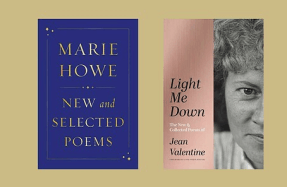For Missy Mazzoli, composing is the hard work of making life easier

As a youngster in rural Pennsylvania, Missy Mazzoli knew she didn't want to become an astronaut or a nurse. Instead, she announced at age 10 that she was a composer — even though she hadn't yet written a note. The adults in her life figured she'd get over it.
Mazzoli, now 42, persisted. From piano lessons and punk gigs to composition classes and Carnegie Hall debuts, her career has risen steadily. In 2016, her opera Breaking the Waves found a breakthrough level of critical attention, introducing her to new audiences. Two years later, she and fellow composer Jeanine Tesori became the first two women to ever have a new work commissioned by the Metropolitan Opera. (Mazzoli's, based on the George Saunders novel Lincoln in the Bardo, is slated for production in 2025.) Her instrumental works are routinely performed by the world's top orchestras and chamber ensembles.
But the way Mazzoli views herself, even after so much success, remains crucial to her creativity. She's part of a longstanding tradition, but also views herself as an agent of change, striving to push tradition to its limits through what she calls a "skillful blend of the familiar and the unexpected." It's a formula that applies as much to her richly layered harmonies as it does to the bold operatic characters she creates for the stage — like those in her latest opera, The Listeners, which tells the story of a group of outsiders in a community trying to find their place and purpose.
From her home studio in Brooklyn, Mazzoli joined a video chat to talk about her early fascination with composing as a job, the importance of relatable role models, her long friendship with mentor Meredith Monk and the risks of celebrating too early when classical music institutions do something right.
This interview has been edited for length and clarity.
Tom Huizenga: I was watching your new opera, The Listeners, and it reminded me of something you once said about the early years of your career: "I always just felt like an impostor, which is not an uncommon way to feel in classical music." Why did you feel that
You’re reading a preview, subscribe to read more.
Start your free 30 days



